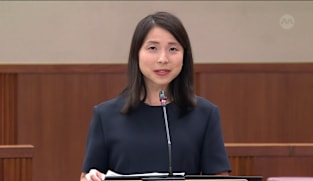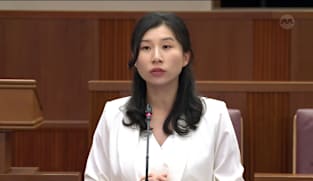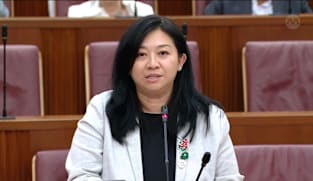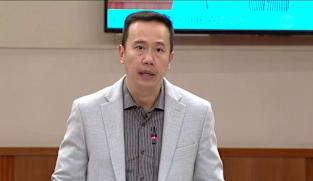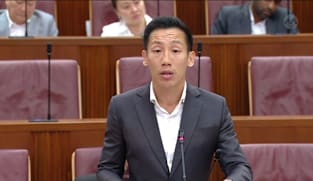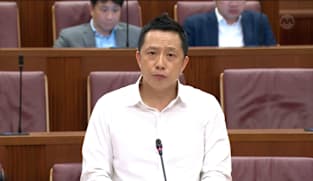Koh Poh Koon on growing Singapore’s hawker culture
Safeguarding Singapore’s hawker culture remains an important priority for the Government and it is committed to work together with the hawker community and stakeholders on this, said Senior Minister of State for Sustainability and the Environment and Manpower Koh Poh Koon. “Together we can sustain our hawker culture to thrive for generations to come,” he said in Parliament on Wednesday (Nov 13). Dr Koh highlighted the fundamental objectives and principles of the Government’s policy - ensure that hawker centres remain Singapore’s community dining room with affordable food options, ensure that hawkers have a decent livelihood and preserve the country’s unique local hawker culture and identity. He pointed out that ensuring that Singapore’s hawker culture continues to thrive entails a fine balancing act. The Government has taken a calibrated and long-term view in crafting its policies, he said. It has put in place comprehensive measures that strike a careful balance between ensuring affordable hawker food options and supporting hawkers with a conducive business environment while safeguarding the long-term sustainability of the hawker trade, as well as local hawker culture and heritage. Dr Koh pointed out that this would not have been possible without the readiness and commitment from hawkers and hawker associations to work with the Government. He said their input and partnership have helped the Government to improve its policies to balance between competing objectives and chart the best way forward for both hawkers and Singaporeans. “We may not always get this right the first time. With your input and feedback and as circumstances change, we will review and adjust our policies. We have done so in the past and we will continue to finetune and improve,” he said. What is important in these adjustments is that hawkers must be able to earn a fair livelihood, said Dr Koh. “This is critical for our hawker culture to thrive for a long time. Without our hawkers as torchbearers, our hawker centres will be empty and our hawker culture will disappear,” he said. Noting that 2025 will be the fifth year since the UNESCO inscription for hawker culture in Singapore, Dr Koh said in conjunction with this milestone, the Government will be reviewing its measures to further support hawkers and revitalise hawker culture. It will announce more details during the Committee of Supply debates next year, he added.
Safeguarding Singapore’s hawker culture remains an important priority for the Government and it is committed to work together with the hawker community and stakeholders on this, said Senior Minister of State for Sustainability and the Environment and Manpower Koh Poh Koon. “Together we can sustain our hawker culture to thrive for generations to come,” he said in Parliament on Wednesday (Nov 13). Dr Koh highlighted the fundamental objectives and principles of the Government’s policy - ensure that hawker centres remain Singapore’s community dining room with affordable food options, ensure that hawkers have a decent livelihood and preserve the country’s unique local hawker culture and identity. He pointed out that ensuring that Singapore’s hawker culture continues to thrive entails a fine balancing act. The Government has taken a calibrated and long-term view in crafting its policies, he said. It has put in place comprehensive measures that strike a careful balance between ensuring affordable hawker food options and supporting hawkers with a conducive business environment while safeguarding the long-term sustainability of the hawker trade, as well as local hawker culture and heritage. Dr Koh pointed out that this would not have been possible without the readiness and commitment from hawkers and hawker associations to work with the Government. He said their input and partnership have helped the Government to improve its policies to balance between competing objectives and chart the best way forward for both hawkers and Singaporeans. “We may not always get this right the first time. With your input and feedback and as circumstances change, we will review and adjust our policies. We have done so in the past and we will continue to finetune and improve,” he said. What is important in these adjustments is that hawkers must be able to earn a fair livelihood, said Dr Koh. “This is critical for our hawker culture to thrive for a long time. Without our hawkers as torchbearers, our hawker centres will be empty and our hawker culture will disappear,” he said. Noting that 2025 will be the fifth year since the UNESCO inscription for hawker culture in Singapore, Dr Koh said in conjunction with this milestone, the Government will be reviewing its measures to further support hawkers and revitalise hawker culture. It will announce more details during the Committee of Supply debates next year, he added.










